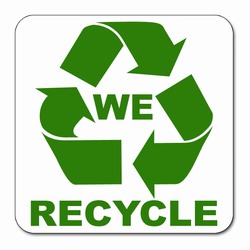The Easter long weekend not only gave us the freedom and will to “all you can sleep”, it is one true chocolate feast for younger children, who enthusiastically invest their energy to complete the Scavenger Egg Hunt. UK based multinational grocer Tesco decides to take two small steps to alleviate the negative effect of the sugar rush. In their promotional video, the tag line “Every Little Helps” aligns well with the company’s purpose to treat the customers “a little better every day”. This time, they have added the green and sustainability feature as part of a deliverable.
The two distinctive actions are: sourcing 100% of its cocoa from programs that promote responsible cocoa when producing their own brand Easter Eggs, and patterning with LEGO to launch “Easter limited edition toy”. The interpretation regarding these moves appears to show the company’s opportunistic, short-tern objective, rather than being dedicated and committed. Nevertheless, this is a reality with most for-profit organization, where tying their brand with sustainability can potentially be strategic, while following through the action requires second thoughts. Under most of the situations, the short run profitability sets a foundation for long term adoption and implementation of the program as these pilot programs intends to test the water.

I found the idea of responsibly sourced coffee interesting, because I think most of the explicit value of this concept lies within taglines and advertisement, rather than quantifying the reduction in environmental impact measured with certain scale or standard (carbon emission, carbon footprint, waste reduction, quality increase etc.). Tesco also chooses its own product lines to promote this new initiative. This allows them to achieve media headlines and further build their brand image, but also allows for production cost control. As a multinational grocery, Tesco also carries more well know products, such as Hershey’s Kisses, Kit Kat and Kinder Eggs. As what we have seen in London Drugs and Safeway, when a homogeneous product is branded under the store’s name, they are offered at a relatively lower price compared to the product imported from its fosterer (ex. Safeway Coke and Coca Cola’s Coke). We may see this as a way for Tesco to ask for a price premium, to compensate the opportunity and tangible cost engaged in the process in order to have a more satisfactory profit margin.
When thinking more positively, this could be viewed as one of the first steps that multinational groceries intend to begin a new venture. After all, the Earth is what ultimately gives us what we eat and drink and many more. Cocoa may appears to be a smaller area when we look at other more essential food elements; however, it sets smaller starting points so that business and consumers can contribute a little every day.
For videos and reading, please visits:
https://www.youtube.com/watch?v=m4AtSkLSkA8&feature=youtu.be
http://www.sustainablebrands.com/news_and_views/products_design/sustainable_brands/tesco_celebrating_easter_responsible_cocoa_exclusi



 make impressive changes. However, with more powerful business leaders, who take control of a larger population, we would expect the change to be more obvious, although this is not necessarily the case. We see company getting increasingly conscious; however, we still see them using excessive packaging, utilizing cheaper labour in third world countries, discharging waste into water streams. It is not to say that they are not trying hard enough; but we might be missing the point here. Sustainability may be one of the many objectives that companies consider, or claim to consider. When this is tied to economic performance and opportunities, there is also an incentive for these companies to paint their image with suitability. Sustainable objective is something that needs to be tracked. It should also be normalized, as one of the many strategic goals for companies, rather than being separately treated as a bonus perk.
make impressive changes. However, with more powerful business leaders, who take control of a larger population, we would expect the change to be more obvious, although this is not necessarily the case. We see company getting increasingly conscious; however, we still see them using excessive packaging, utilizing cheaper labour in third world countries, discharging waste into water streams. It is not to say that they are not trying hard enough; but we might be missing the point here. Sustainability may be one of the many objectives that companies consider, or claim to consider. When this is tied to economic performance and opportunities, there is also an incentive for these companies to paint their image with suitability. Sustainable objective is something that needs to be tracked. It should also be normalized, as one of the many strategic goals for companies, rather than being separately treated as a bonus perk.
 I always feel that change cannot be achieved with an individual. The need to change and the desired action is often invented, by a group of individuals, with the objective to gain more influence. However, human beings seem to generally be a passive responder, reacting only to unavoidable consequences and responsibilities. There are still sometime before the environment becomes the one and single pressing issue that can no longer be ignored. The normative analysis tells people to become active and engaged, while the positive analysis indicates that people are putting their dependence on each other, without truth progressing as a unity.
I always feel that change cannot be achieved with an individual. The need to change and the desired action is often invented, by a group of individuals, with the objective to gain more influence. However, human beings seem to generally be a passive responder, reacting only to unavoidable consequences and responsibilities. There are still sometime before the environment becomes the one and single pressing issue that can no longer be ignored. The normative analysis tells people to become active and engaged, while the positive analysis indicates that people are putting their dependence on each other, without truth progressing as a unity.